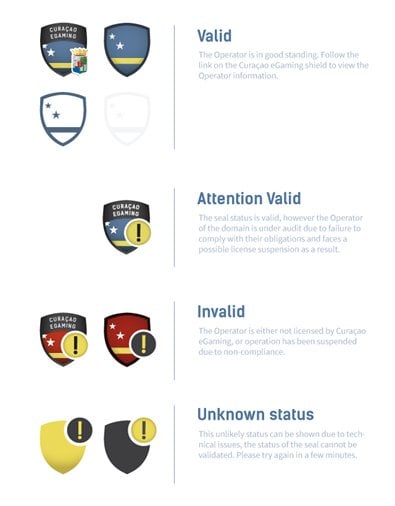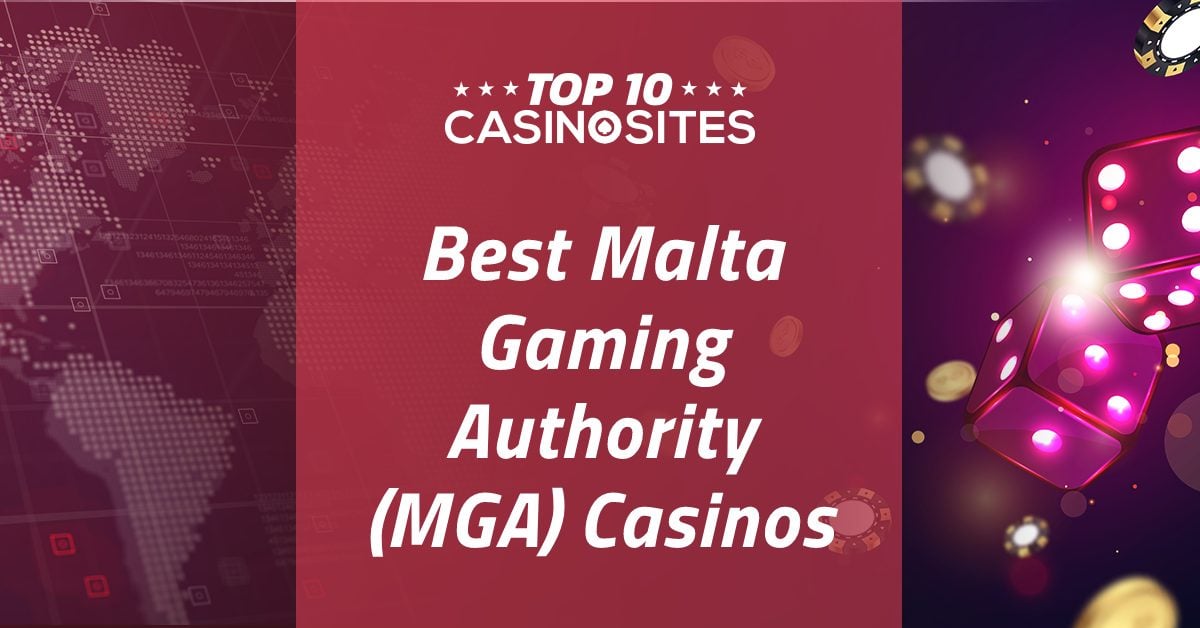Licensed Online Casinos to Play at Safely in 2025
A licensed online casino is one that is regulated by a central gambling authority or commission. Operators can be licensed on a local, regional or national level.
- Where Is Gambling Legal?
- Where Is Gambling Prohibited?
- Types of Gambling Licences
- How Do Gambling Operators Gain Licensing?
- Gambling Regulations Around the World
- Online Gambling Jurisdictions – What Are They?
- Gambling Laws by Country and State – What Is the Difference?
- How Do Online Gambling Regulators Protect Players?
- Most Important Regulatory Bodies in the World
- Why Is It Important to Play at a Licensed Casino?
- How to Check if a Casino Is Licensed and Regulated
- Risks Associated With Playing at Unregulated Casinos
- Conclusion
- FAQs
Where Is Gambling Legal?
Attitudes towards gambling differ by country, state and government, with every nation having a different regulatory framework to protect its citizens.
Regulators commonly define online gambling as any form of gambling conducted on the internet. That means most games of chance and skill are included in this category (poker, blackjack, lottery, bingo), alongside sports betting.
Places where gambling activities are currently legal include, but are not limited to:
- Parts of the United States (New Jersey, Atlantic City, Delaware, Pennsylvania, Nevada, West Virginia, Louisiana)
- Some Canadian provinces (Ontario, Alberta, British Columbia)
- Many countries in the European Union (Germany, Italy, France, Spain, Greece, Malta)
- The United Kingdom
Where Is Gambling Prohibited?
Gambling is still a controversial topic for some nations. In fact, there is a surprising number of countries that have done everything they could to ban it entirely, or even prohibit access to offshore gambling services to its residents.
Some of the harshest anti-gambling laws have been passed in Islamic countries where the behaviour is frowned upon and criminalised on moral or religious grounds. Players can get fined or even incarcerated for up to 2 years if they are caught using any gambling services.
In some places, there is an explicit ban on land-based gambling (Iceland, Bangladesh, Barbados, Brazil, Ecuador, Japan, Poland, Cambodia, North Korea).
Other countries only ban specific betting activities (for example, some forms of online gambling are prohibited in Cyprus).
Types of Gambling Licences
There are many types of gambling licences that companies can apply for to operate legally in a particular jurisdiction:
- Local licence
- Offshore gaming licence
- Remote licence (issued to operators who offer betting services via the internet)
- Game-specific licence (lottery, online casino etc.)
Many regulators also split their game-specific licences into class I (for casino-style games, lotteries and slots), class II (sports-betting), class III (tournaments and bingo) and class IV (vendors taking commissions on player bets).
An online gambling licence can be issued worldwide; however, some governments and regulators tend to be wary of operators with offshore licences. This is because some licensed online casinos are regulated in tax havens (e.g. Cayman Islands, Panama, Belize) that may have lower requirements or more lenient gambling policies.
How Do Gambling Operators Gain Licensing?
Licensing requirements and costs differ depending on the issuing authority, the jurisdiction and the type of licence the operator is applying for. Licences are typically valid for 5-10 years, and have a cost of around €9000 yearly on average.
Once an operator has become accustomed to the laws of the country they want to provide their services to, they need to register a domain, pay the costs of the licence and submit the relevant documents to the regulator.
In most places around the world, operators are also required by law to conduct Responsible Gambling initiatives and offer support on their platforms to the most vulnerable players (self-exclusion programs, deposit limits, and other similar features or tools).
Gambling Regulations Around the World
Because gambling is regulated differently in every country and jurisdiction, measures and laws are passed by either the government, a gambling commission, board or association.
Europe
European countries are autonomous, meaning that each has a different regulatory body and approach to gambling. Most countries in the EU allow games of chance via the internet. Some have legalised the whole spectrum of betting and casino games, from poker to online slots.
The European Gaming and Betting Association (EGBA) is the organisation that establishes continent-wide regulations, having been created to ensure a safe and fair gaming environment for members of the EU. If an operator wants to bring its services to European players, they have to first follow EGBA guidelines and then also abide by each country’s gambling laws.
Online gambling is legal in countries like France, Germany, Spain, Italy and Romania.
Asia
Asia is one of the fastest growing destinations for gambling in the world.
Land-based casinos in Macau are hugely profitable tourist attractions – so much so that the gross Macau casinos gambling revenue increased by more than 50% in March 2021, climbing to its highest recorded level in over a year.
Gambling operations in Asia are also conducted by independent websites, state lotteries (e.g. China) or offshore operators.
In some Asian countries like Taiwan, Bangladesh, Indonesia and Singapore, gambling is illegal, while online gambling is banned in China, Cambodia and South Korea. On the other hand, the Philippines, Macau and, most recently, Japan, have become hot spots for gambling.
UK
In the UK, all gambling activities are regulated by the UK Gambling Commission under the Gambling Act of 2005.
For an offshore operator to provide its services to UK players, they need to obtain a licence from the Gambling Commission. These operators represent a large chunk of UK’s online gambling landscape, with popular bookmakers like 888casino, Betfair, and William Will having large overseas operations.
Canada
Canadian law states that all forms of gambling are illegal in the country, with the exception of those licensed or managed by the government. The law doesn’t prohibit betting on the internet if the operator is licensed by a provincial government.
Some Canadian provinces that have legalised gambling are British Columbia (where Canada’s first legal online casino, PlayNow, was launched), Quebec, which introduced online poker rooms, Alberta and Manitoba.
New Zealand
Gambling in New Zealand is illegal unless it abides by the stipulations of the Gambling Act of 2003. Certain forms of gambling, such as remote interactive gambling or advertising overseas gambling, are strictly prohibited as well. The Department of Internal Affairs is the body that controls all gambling activities in the country.
Players in New Zealand can participate in online gambling only on websites based and licensed overseas.
South America
South America is considered an emerging market for online gambling; however, legislation varies greatly by country. For example, all luck-based games are illegal in Brazil, whilst Argentina has legalised local lotteries, horse racing and casinos. In Colombia, offline gambling is legal and largely controlled by the government, whereas online gambling is prohibited.
Africa
Some African countries ban all forms of gambling, while others allow both land-based and online operations. Then there are those which haven’t established any clear regulations for the industry.
Over 80% of gambling activities happen in South Africa. Kenya, Uganda, Ghana and Nigeria are some of the few countries that allow online gambling.
Online Gambling Jurisdictions – What Are They?
Some regions in the world, such as Malta or Gibraltar, have regulatory frameworks and specialised companies that allow them to offer licences to online operators overseas. That is why they are also called licensing jurisdictions.
The quality level of a gambling jurisdiction has direct implications on the players. It’s known that casinos licensed by quality regulators located in Alderney, Gibraltar or Isle of Man will be monitored more closely. In turn, that means higher quality standards and better player protection.
Gambling Laws by Country and State – What Is the Difference?
Gambling laws in countries and states might not always coincide.
One such example is the US – although gambling is legal under US federal law, individual states can still place restrictions on this activity within their borders.
The same applies to India, where gambling laws are different in every state. Goa, Daman and Sikkim are currently the only three states in India where local casinos can legally operate, with the rest of the Indian market being dominated by licensed off-shore operators.
How Do Online Gambling Regulators Protect Players?
Regulators are the ones that hold casinos accountable and make sure they comply with local legislation and the terms of their licensing. The regulators’ main responsibilities are:
- Auditing & software verification, which involves conducting reviews and visiting the operator’s premises (if they also have physical locations).
- Sanctioning any abusive terms and conditions listed by licensed online casinos for bonuses and promotions.
- Reviewing the casinos’ financial information to make sure everything checks out.
- Taking legal action against licensed online casinos which are not compliant (fines, blacklisting or even revoking their licence ).
Most Important Regulatory Bodies in the World
If you’re looking to register on a legal casino online, you should aim for it to be backed by a respected licensing authority, such as:
The Malta Gaming Authority
The Malta Gaming Authority (MGA) is the gaming control board of Malta, and part of the reason why the country has become such a global hub for innovation. It is one of the most prestigious gambling jurisdictions in the world, hence why the best MGA casinos are known for offering very high quality standards.
Since its establishment in 2001, the MGA has always aimed to ensure a safe and fair gambling environment for the end user, whilst preventing crime, corruption and money laundering.
The MGA regulates all forms of gambling within the country, online and land-based, from slot machines to fantasy sports and lotteries.
The regulator’s most important objectives include research of the iGaming industry, promoting responsible gambling, offering consultancy on how to get a gambling licence, monitoring casinos and protecting vulnerable players.
The UK Gambling Commission
The UK Gambling Commission (UKGC) is UK’s government-run regulatory body, set up with the purpose of regulating commercial gambling in the country (through the Gambling Act of 2005) and the National Lottery (through the National Lottery Act of 1993).
The regulator provides licensing to all classes of operators – lotteries, sportsbooks, bingo, arcade operators and online casino sites – and ensures that its requirements are met by all.
UKGC’s most important objective is, in their words, to “keep crime out of gambling” by ensuring that all operators conduct their gambling activities transparently and fairly.
The UK Gambling Commission is particularly tough on consumer safety, actively taking steps to prevent casinos from advertising to minors, banning credit cards at bookmakers to keep people from betting on debt and imposing stronger age and identification checks.
Every casino licensed by UKGC is required to sign up for the self-exclusion scheme Gamstop and offer responsible gambling resources to its players.
Curaçao
Curaçao is a small island country and part of the Dutch Caribbean. It's also one of the oldest licensing hubs in the world, having granted offshore licenses to qualifying eGaming operators since 1996. The best Curaçao casinos include the likes of Mr. Bit and Tsars.
As opposed to other licensing authorities, the Curaçao regulator grants a single licence that covers all forms of eGaming – casinos, sports betting, lottery, games of skill and chance.
For this reason, Curaçao is believed to be one of the most accessible jurisdictions for any offshore online or mobile casino to gain licensing. Additional perks are offered to operators – a licensing label displayed on the website, integration with multiple cryptocurrencies as payment, and others.
The regulator has also created a useful visual guide to protect players against fraud and help them determine if the casino they’re about to register on has a valid licence:

Source: Curaçao eGaming
Other trusted licensing authorities are:
- Antigua and Barbuda – Operators can apply for two licenses here: the interactive gaming licence (for casino-style games) and the interactive wagering licence (for sports betting). Since 1994, Barbuda’s legislation has allowed gambling licences to be given to any operator in the world, as long as they meet the strict terms imposed by the government (e.g. display information about problem gambling on the website, age-checks, the possibility to limit deposits, AML policies).
- Isle of Man Gambling Supervision Commission – The Isle of Man was one of the first ever online gambling jurisdictions. Created in 1962, it is still one of the most respected and prestigious bodies of its kind to this day. This regulator issues a single licence type for all forms of gambling, making the application process easier and smoother for any operator.
- Gibraltar Regulatory Authority – Gibraltar is considered one of the top offshore destinations to gain licensing. Because the region is self-governed, but still part of the British Crown, Gibraltar online casinos are able to offer their services to UK players too. The government of Gibraltar offers licences for all types of gambling services – casino, lottery, poker, social gaming.
- Alderney Gambling Control Commission – The AGCC offers full support for setting up an online casino or other types of betting services. Class I and class II licenses are offered, meaning both local and foreign companies can run operations here. To gain licensing, operators of Alderney online casinos must provide the AGCC with a detailed business plan, information on the games they offer (including RTP and RNG) and payment policies, as well as agree to periodic reviews from the regulator.
Why Is It Important to Play at a Licensed Casino?
The biggest reason is increased player protection. A licensed casino needs to abide by strict rules, most of which are designed to keep you and your funds secure.
Licensed online casinos also have fair, audited games by independent authorities such as eCOGRA, meaning that you are guaranteed to get random odds every time and a good shot at winning.
Lastly, when you play at regulated casinos, you can also get help with solving disputes. For example, the Malta Gaming Authority has a Player Support Centre that you can contact if you’ve ever encountered an issue with any operator licensed by them.
How to Check if a Casino Is Licensed and Regulated
The simplest way is to visit the casino’s platform and scroll down to the footer section. That is where you will typically find all the information you need about the licence type, number and the issuing body or the regulator.
Our advice is to also copy the licence number and match it with the regulator’s public database. It’s also wise to check if the casino has been blacklisted in the past or not.
Risks Associated With Playing at Unregulated Casinos
Short answer? Too many to ignore, which is why you should steer clear of unregulated operators, even if they promise huge bonuses or perks.
Playing at unregulated casinos means virtually no protection from potential data or financial theft, abusive bonus clauses, withholding of funds won fairly or even rigged games.
Conclusion
In order to protect your safety, it is always better to play at legal and licensed casinos only. The most prestigious licensing authorities in the world are the UK Gambling Commission, Alderney Gambling Control Commission and the Malta Gaming Authority, known for upholding the highest security standards for the industry. It’s also recommended that you follow your country’s local laws. To protect their citizens, most countries only allow local or foreign operators to conduct business within their borders if they are licensed and comply with all legal requirements.
FAQs
-
Signs of a legal online casino include a verifiable licence, a trustworthy list of software providers (e.g. Microgaming, NetEnt) and fair games certification from independent auditors (e.g. eCOGRA).
-
Licensed online casinos typically display their licence number on the homepage, in the footer section. You can also match it with the regulator’s database to see if the licence is in good standing.
-
In most parts of the world, the legal gambling age is 18 years old, with the exception of US, where it’s 21 years old.
-
Taxation is different depending on the country’s fiscal authority. Most operators will usually withhold a percentage of every deposit and win at the source.
-
France, Italy, Spain, Greece and Malta are just some examples of EU countries that allow their residents to place bets on the internet legally.
-
In most parts of the world, yes, you can get fined, so it's always best to play at a licensed casino online.
-
Gambling is banned in Islamic countries and in some parts of Asia – e.g. Qatar, Lebanon, North Korea. Cyprus is also one of the few European countries where some types of online gambling are prohibited.
-
888casino, William Hill and Mecca Bingo are all solid picks if you’re searching for the best legal online casino in the UK.
-
The Malta Gaming Authority, the UK Gambling Commission and Alderney Gambling Control Commission are all highly trustworthy and reputable authorities within the iGaming sector.
-
Regulators audit casino operators periodically to make sure their games and bonus terms are fair. In addition to this, they ensure operators have responsible gambling policies in place, and check the software providers casinos work with.











